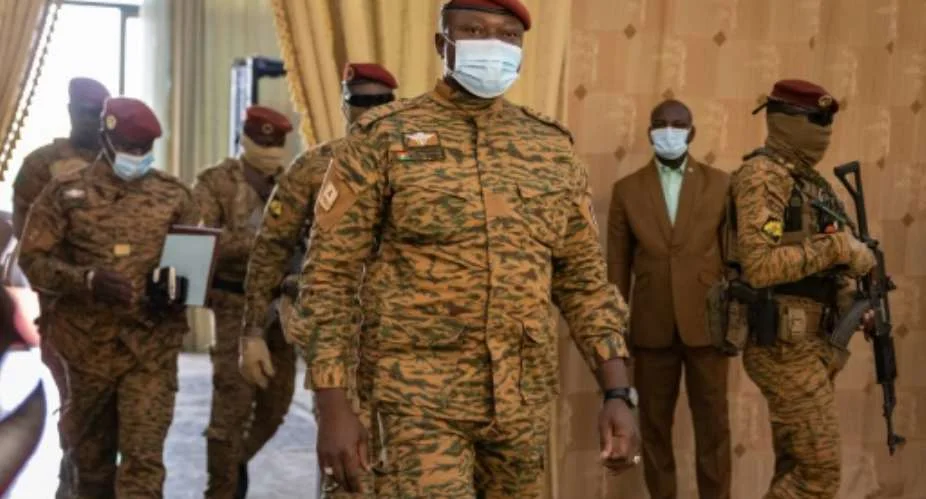A wave of brutal jihadist attacks in Burkina Faso has put the country’s military junta, led by Lieutenant-Colonel Paul-Henri Sandaogo Damiba, under intense scrutiny just weeks after seizing power on January 24, 2022. The deadliest assaults since Damiba ousted elected President Roch Marc Christian Kaboré occurred in Dori, in the northeast, claiming 23 civilians and 13 gendarmes over four days through ambushes, road mines, and motorbike raids. “These latest attacks… are a reminder of the need to work fast,” said political analyst Drissa Traore, highlighting the urgency for the junta to deliver on its security promises amid a crisis that has killed over 2,000 and displaced 1.7 million since 2015, per AFP.
Damiba’s Security Overhaul Under Pressure
Damiba, who declared the jihadist insurgency his top priority, has implemented reforms, including restructuring the anti-jihadist campaign, appointing a new armed forces chief of staff, and retaining Kaboré’s defense minister, Barthelemy Simpore. A February 2022 decree recalled retired soldiers to active duty, signaling a push to bolster forces. However, “the Burkinabe public is still waiting for the road map from the new authorities,” noted l’Economiste du Faso, criticizing a perceived slowdown in action. With 40% of Burkina Faso outside government control by late 2022, per ACLED, questions linger about the junta’s ability to translate reforms into results.
Jihadist Strategy and Regional Isolation
The insurgency, linked to Al-Qaeda and Islamic State affiliates, has intensified since spilling over from Mali in 2015. In Dori, “the terrorists’ strategy entails isolating major towns by cutting off roads and communications,” explained Sahel security researcher Mahamoudou Sawadogo. This tactic pressures locals to join armed groups for survival, complicating military efforts. “If we continue to drag our feet, air power will be useless because the terrorists will be embedded in the population,” Sawadogo warned. The junta’s three-year transition timeline, defying international calls for a swift return to civilian rule, adds to the challenge, with ECOWAS suspending Burkina Faso in 2022.
Foreign Support and Strategic Uncertainty
Damiba’s strategy for foreign military support remains unclear. France’s Barkhane force, operating in Burkina Faso, conducted joint operations post-coup, with General Laurent Michon stating on March 4, 2022, “We will carry on the fight with countries that want our support.” However, France’s 2022 withdrawal from Mali amid junta tensions raises questions about its long-term role. Some Burkinabé, waving Russian flags during the coup, have pushed for Wagner Group mercenaries, a move Kaboré opposed. By August 2025, Burkina Faso’s alignment with the Russia-backed Alliance of Sahel States (AES) after leaving ECOWAS signals a geopolitical shift, potentially impacting counterterrorism partnerships.
Urgent Need for Action
The junta faces mounting pressure to act decisively. “There’s no grace period,” Traore emphasized, as the Dori attacks underscore the insurgency’s brutality. With 8,000 deaths in 2023 alone (ACLED) and 2 million displaced by 2025 (UNHCR), the crisis demands robust operations. “We are still waiting for major operations,” Traore noted, reflecting public frustration. As of August 2025, under Captain Ibrahim Traoré, who ousted Damiba in September 2022, jihadist attacks persist, with a recent assault in Youba killing 20 soldiers, per X posts. The junta’s ability






